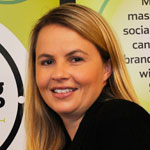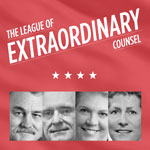If you see smoke rising from the Electronic Arts (EA) lawn, don’t be alarmed. A fire hasn’t broken out—if it’s Friday. And, if you glimpse a soldier decked out in a full Nanosuit, think nothing of it. It’s just another day at the office for the Silicon Valley-based entertainment software company.
EA, the creator of such wildly successful titles as Madden NFL and The Sims, is a company with a culture fitting only for a video game giant. Despite having celebrated its 30th birthday just a year ago, there’s nothing stopping EA or its employees from acting like kids. At the California headquarters, which spans 27 acres in sunny Redwood Shores, everyone—from the CEO to the CGI artists—is a gamer.
On any given day as you stroll through the office, you may be privy to the drama created by a Dead Space 3 string-instrument score or the jubilance of a jackpot scored on Bejeweled Blitz as they echo off the dark, exposed ceilings. Employees can be found slaying beasts and scoring touchdowns from their desks or in the common areas, which resemble those found on a college campus, outfitted with flat screens and console controllers. You won’t see employees wearing suits or monochromatic polos—unless, that is, they choose to. And if they’ve tuckered themselves out micromanaging their SIM-ulated families, they might have a Starbucks in hand, brewed at the on-campus café. These might be some impressive perks, but it’s all part of a corporate philosophy that EA’s executive vice president and chief talent officer, Gabrielle Toledano, captures with a four-word mantra: “work hard, play hard.”
In the land of technology start-ups, Toledano sees EA’s HQ office as a diamond in the cement. “I was just visiting another company here in the [Silicon] Valley, and the only way I could describe the space was sterile and the opposite of EA,” she says. “When people see our spaces, they describe them as fun places to be, and that’s reflective of who we are, an entertainment company.”

Unlike at other tech companies in the Valley, you won’t find developers hunched over their desks at EA, coding from 9 a.m. to 5 p.m. Yes, the company is creating intellectual property, but its focus is on the ‘A’ in its name—Arts—which sets the company apart from the likes of Google and Microsoft. As an entertainment company, EA concerns itself with a high level of design and artistic quality, which influences the workspace. Each franchise’s work area, Toledano explains, is reflective of the often whimsical or fantastical worlds in which the company’s video-game characters exist.
Toledano isn’t the only one who has noticed the difference. In 2010, the Redwood Shores office was featured in I Wish I Worked There, a book that compiles the best work environments in the world. With that distinction comes the task of creating a workspace that is conducive to creativity, collaboration, and comfort. And, to foster innovation, EA supports a number of ad-hoc brainstorming committees that can propose solutions to company challenges or be the think-tanks through which new games are incubated and hatched.
What’s your favorite way to unwind at EA?
Elena Rente
Human Resources Manager
“I love to get some fresh air by heading to our rooftop patio to read. The view from the patio is amazing: you can see the water, mountains, and bridges. It’s the best kept secret on our campus!”
Jessica Henry
University Relations Manager
“Grab a Starbucks (that is on-site!) and sit in the atrium with a colleague-turned-friend, and it may just feel like you are in your living room, catching up.”
Abra Winn
Executive Admin, EA University & Facilities
“I jaunt off to the Fitness Center to take advantage of the amazing gym equipment or group exercise classes. Boxing is a great de-stresser!”
“We can’t create games and be successful without our employees, our talent,” says Toledano, who adds that talent acquisition is written into the three-part company strategy, putting it on par with the company’s brands—its games—and platform—its infrastructure to deliver games digitally, directly to the consumer—in terms of importance. To keep the pipeline stocked with brainpower, EA empowers future engineers, designers, and developers through outreach programs with local schools, and also worldwide, through tech meet-ups and advice blogs.
“We like to promote organic creativity, be it through our annual conference, EA DevCon; Digital Underground, our online learning center; Pitch Club, where employees can pitch new ideas; and Strategic Action Teams made up of employees from all functions across the company who work together to solve problems,” Toledano says.
In Redwood Shores, employees campaigned for a bus service to alleviate them of their commutes from nearby San Francisco, and, in EA’s Vancouver office, four-legged friends are a fixture thanks to the efforts of a few employees who wanted to bring their pets to work. In a similar way, designer Ocean Quigley and engineer Andrew Willmott of Maxis, an EA studio, were able to leverage the company’s soft spot for creativity and resurrected the SimCity franchise, which launched in March.
“However people want to express themselves is very much valued and applauded here,” Toledano says. “Employees can dress how they like, color their hair however they want, have any personal preferences, as long as they deliver, which our employees do without much of a push. These people live and breathe gaming, so their work is also their fun.”
Much like the worlds that exist inside of EA’s gaming portfolio, the Redwood Shores location provides employees amenities that make it feel like a free-standing community. The smoke that hangs in the air on Friday afternoons carries with it the aroma of barbecue hot-off-the-grill. When engineers have had enough virtual FIFA Soccer for one day, they can kick a real soccer ball around on the full-size soccer field. And rather than asking employees to leave their personal lives at home, EA invites them to bring their kids to the on-site day care.
Where the front office is more like a home office, Toledano says EA is striving to create an environment where employees can take pride and ownership in their work while maintaining a healthy balance of down time. “This is a place where people love to come to work,” she says. “And they love what they do.”
We are proud of Electronic Arts’ talent initiatives’ success. Since 2008, Avature has provided clients with flexible Web 2.0 technology designed to meet the toughest challenges of global recruiting and employee mobility with lean and agile processes, while leveraging the new opportunities presented by social media. Learn more at www.avature.net.

